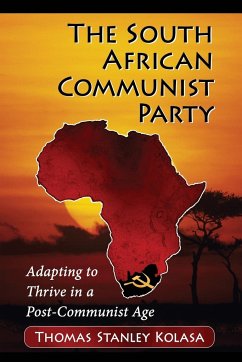Since the collapse of communism in Eastern Europe in the early 1990s, communist parties are widely regarded as passe or irrelevant. But these parties still exist, act and sometimes thrive in various corners of the world. This comprehensive history describes how the South African Communist Party has not only survived but flourished in a harsh political environment. Formed in 1921 as an umbrella organization of leftist groups, the SACP for decades fought against the racist Apartheid regime, ascending to power in 1994 with its senior alliance partner, the African National Congress. Approaching its centennial, the SACP now faces possibly its greatest challenge: working towards a socialist future for South Africa while governing a diverse and complex capitalist country.
Hinweis: Dieser Artikel kann nur an eine deutsche Lieferadresse ausgeliefert werden.
Hinweis: Dieser Artikel kann nur an eine deutsche Lieferadresse ausgeliefert werden.








